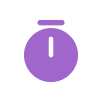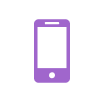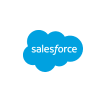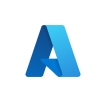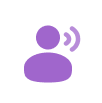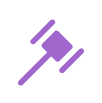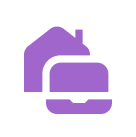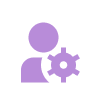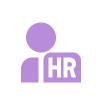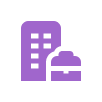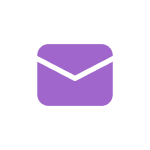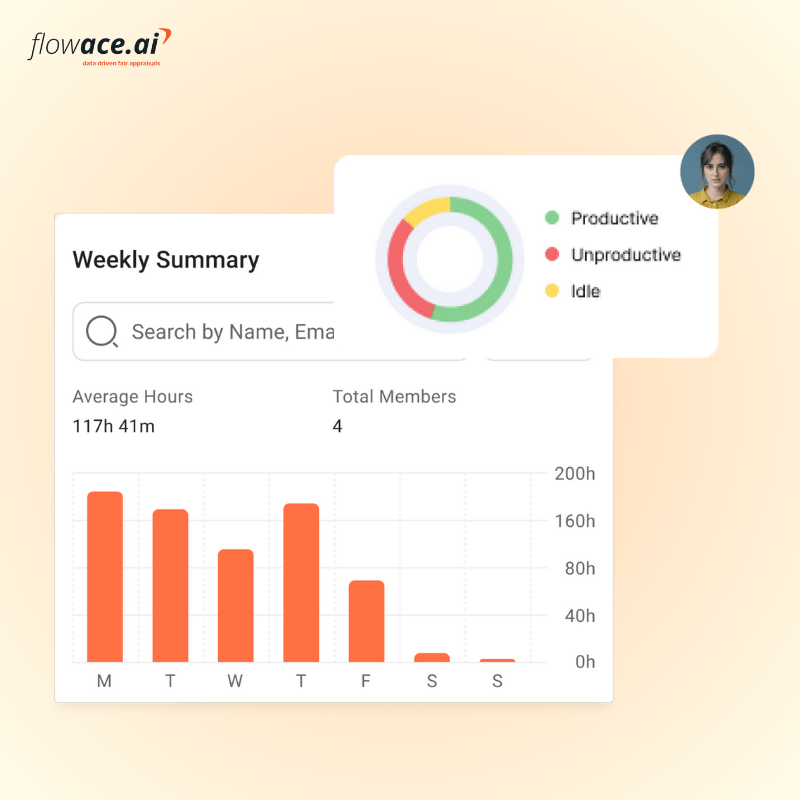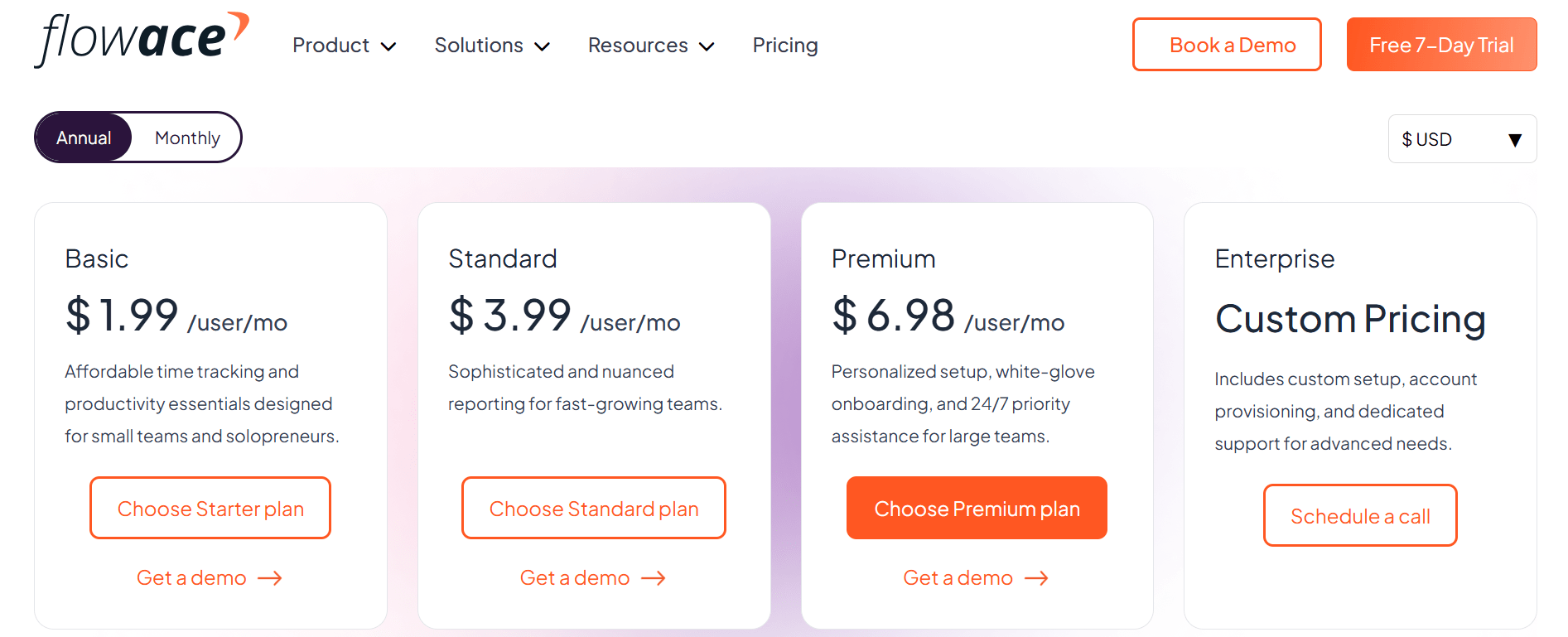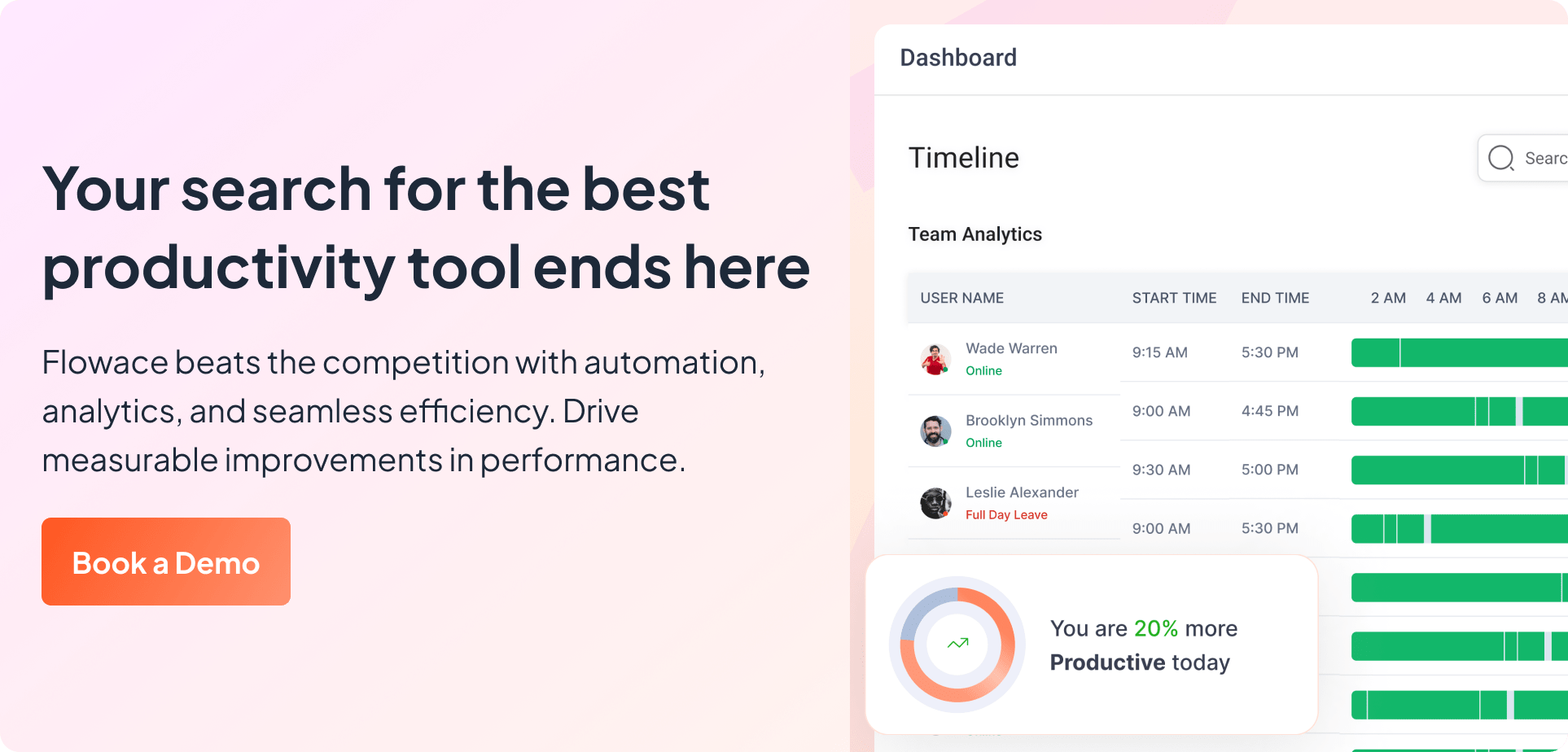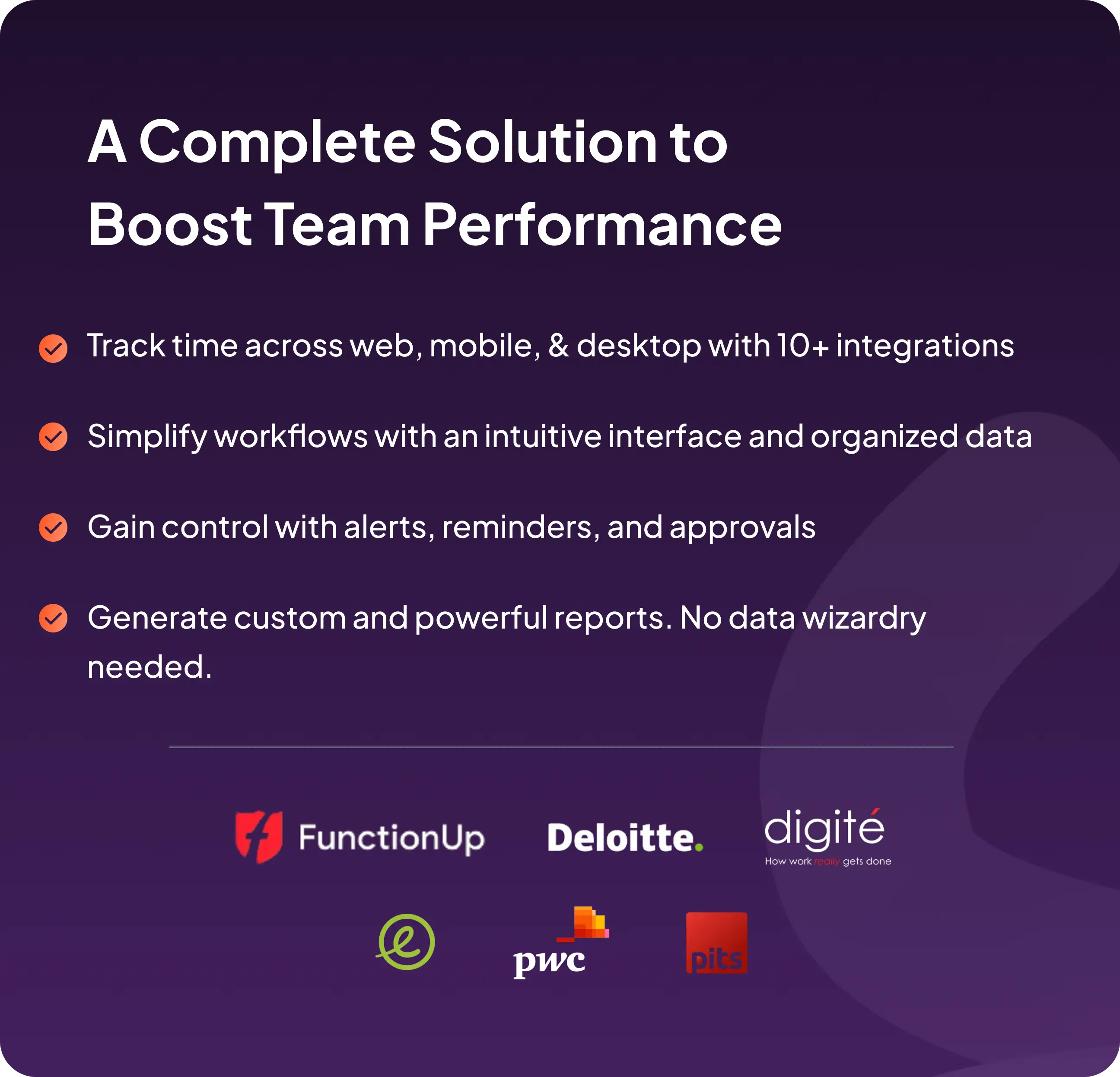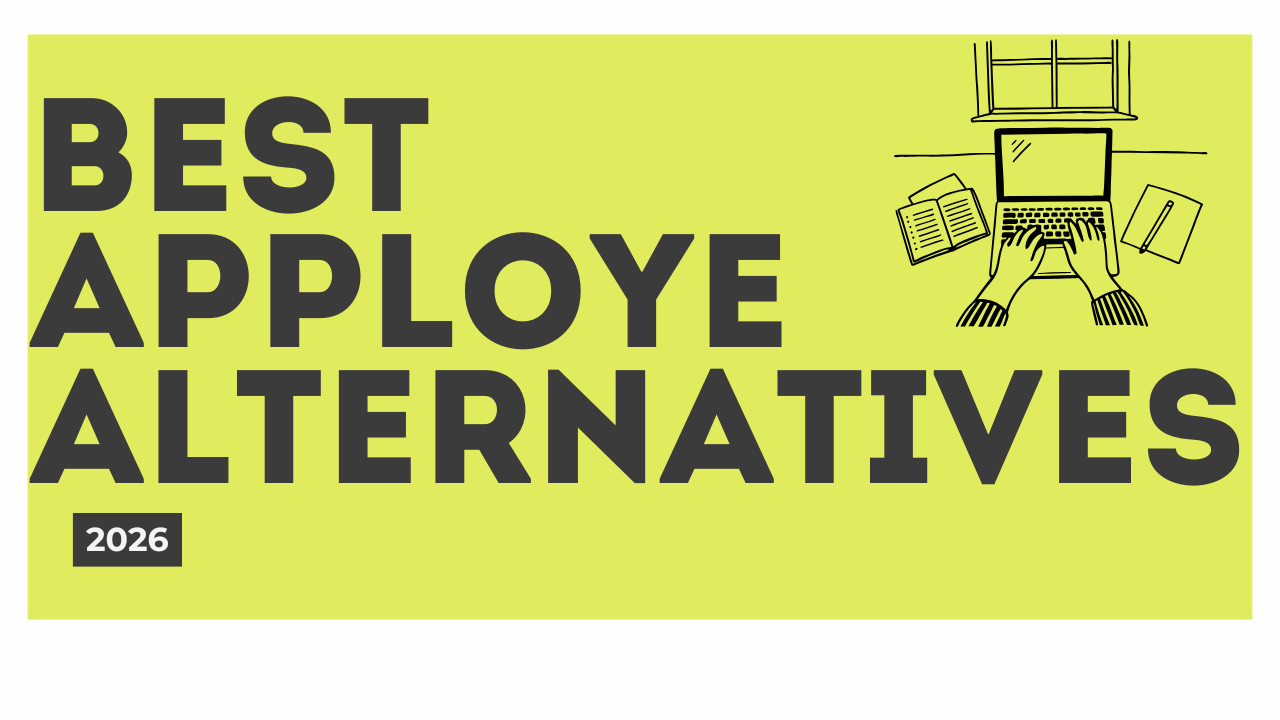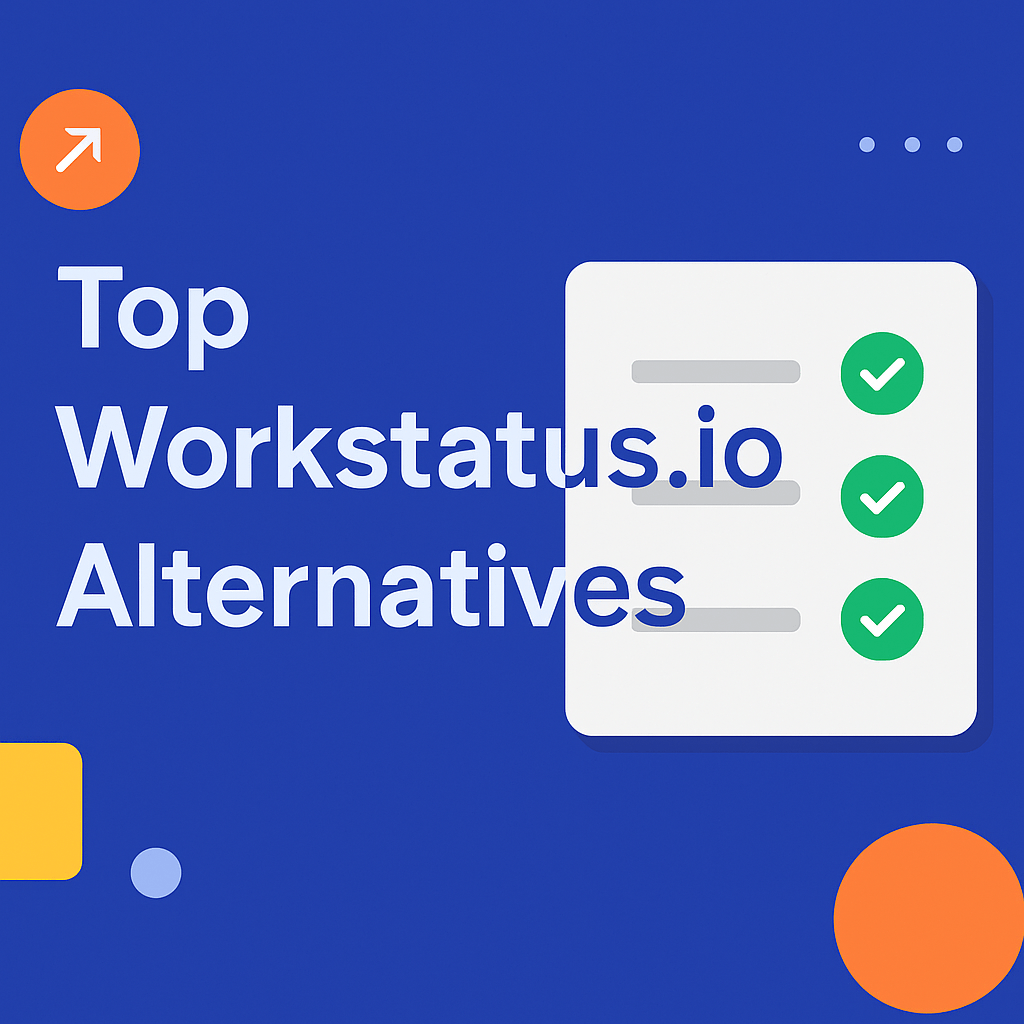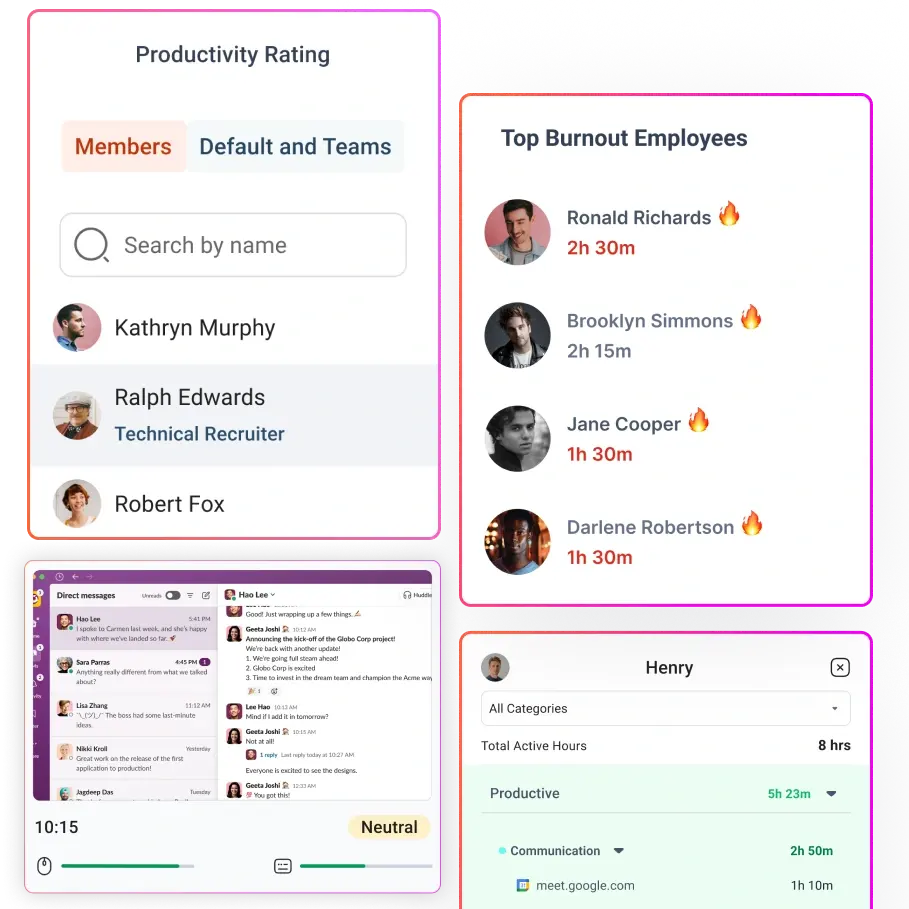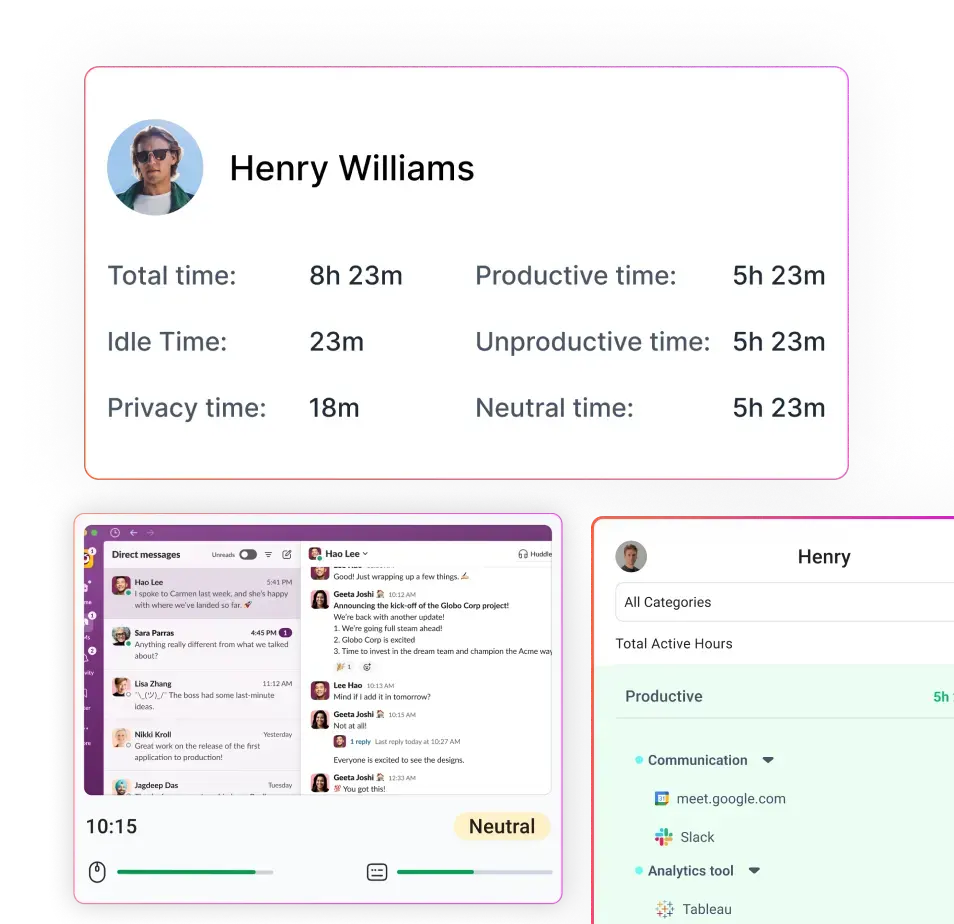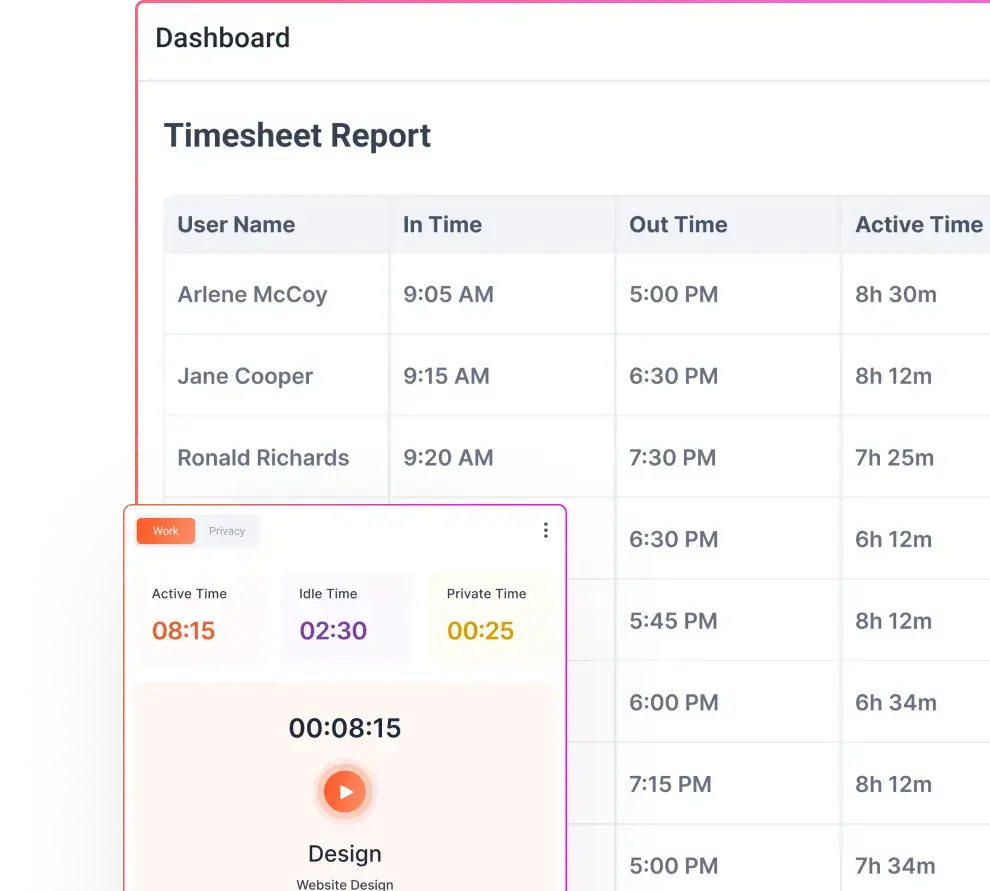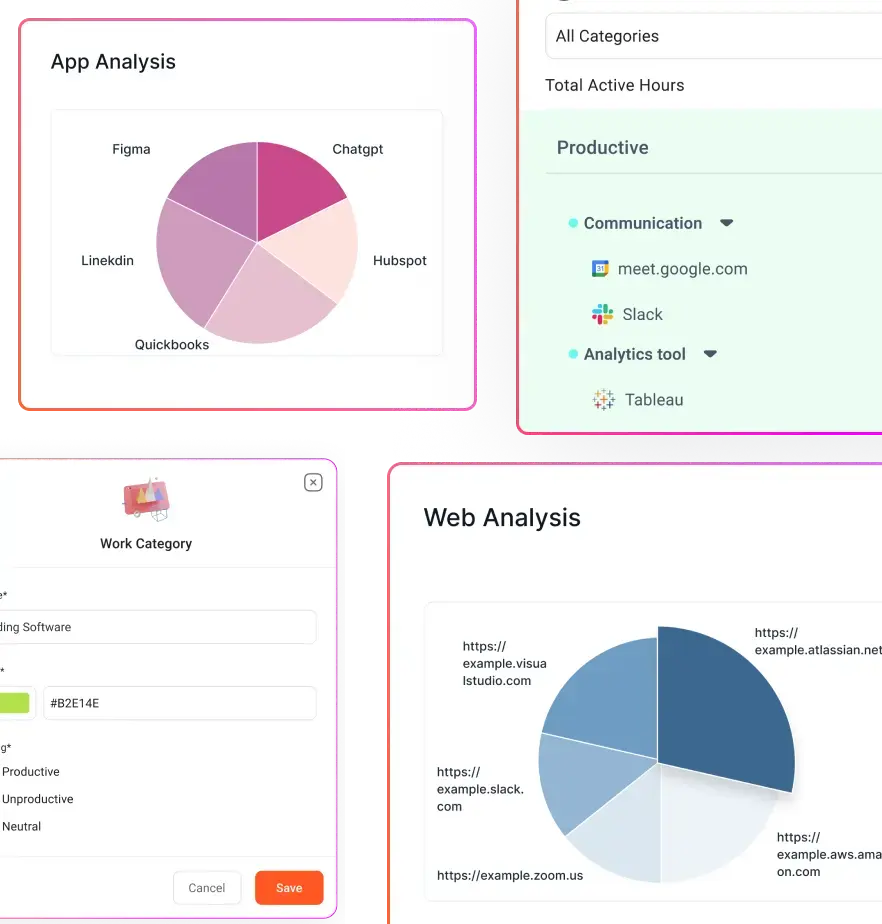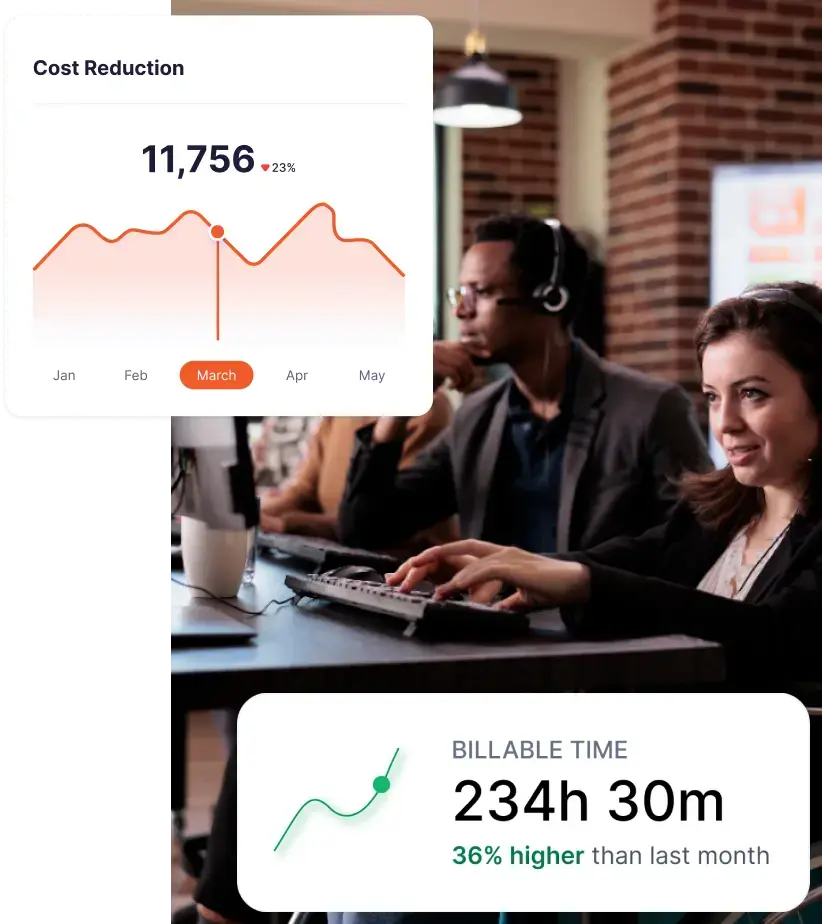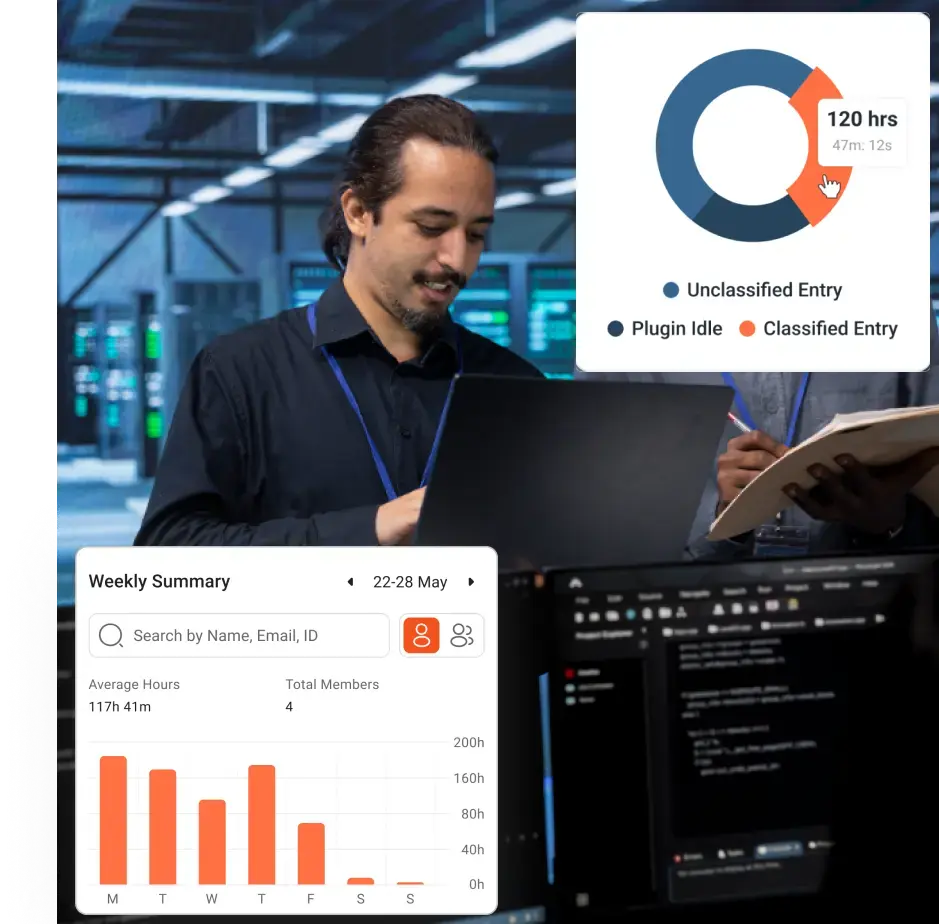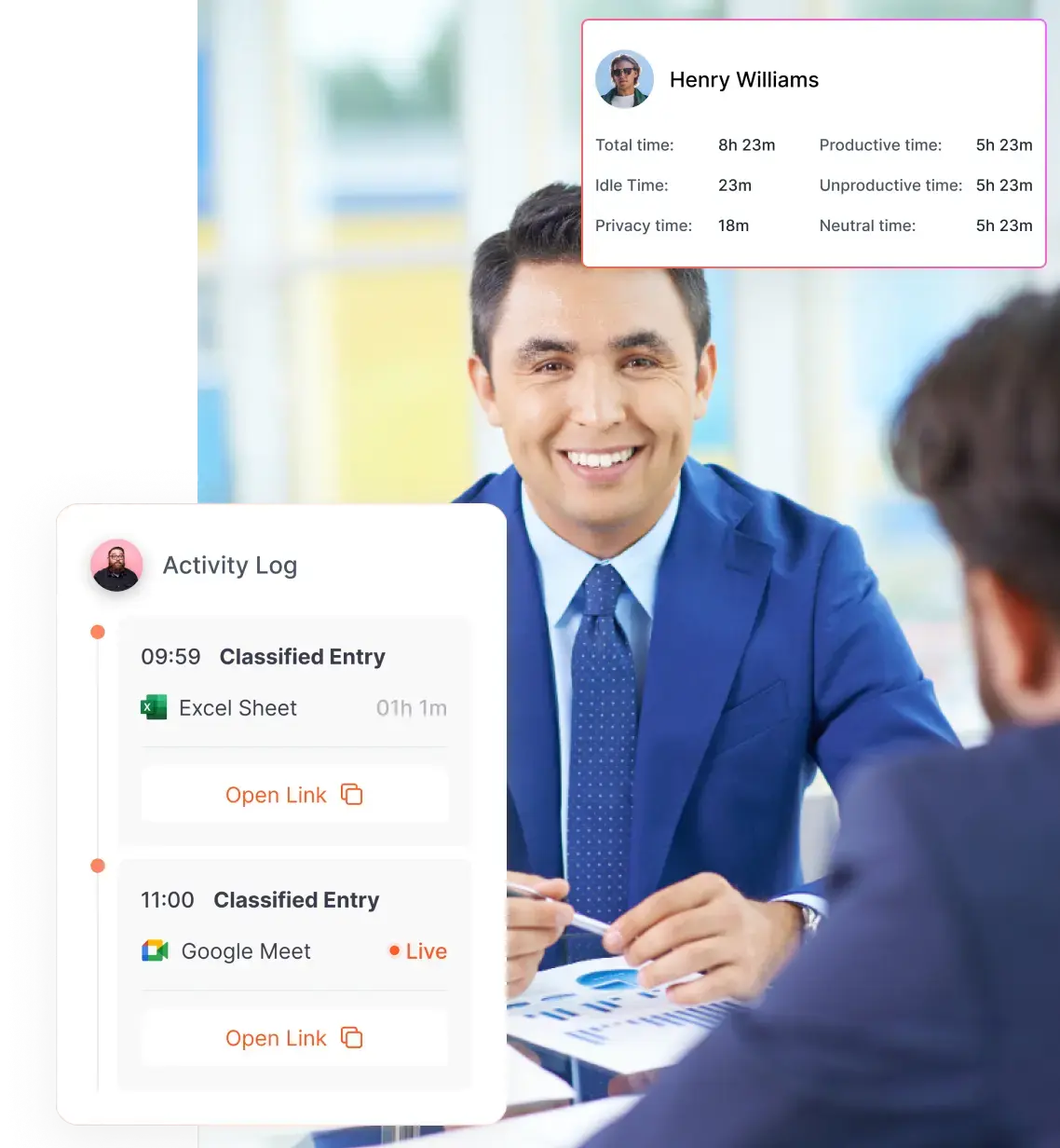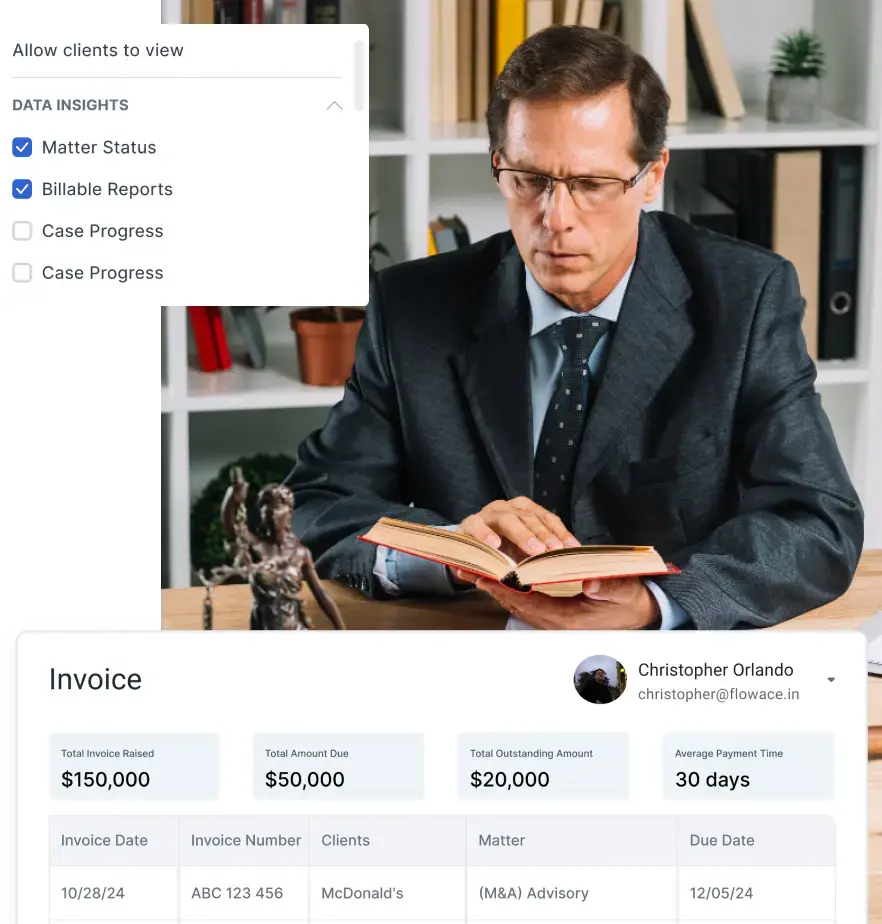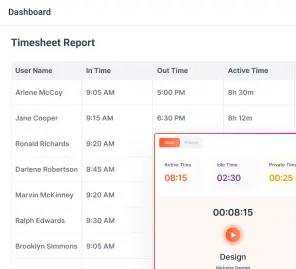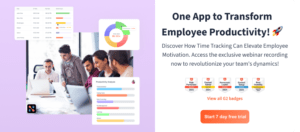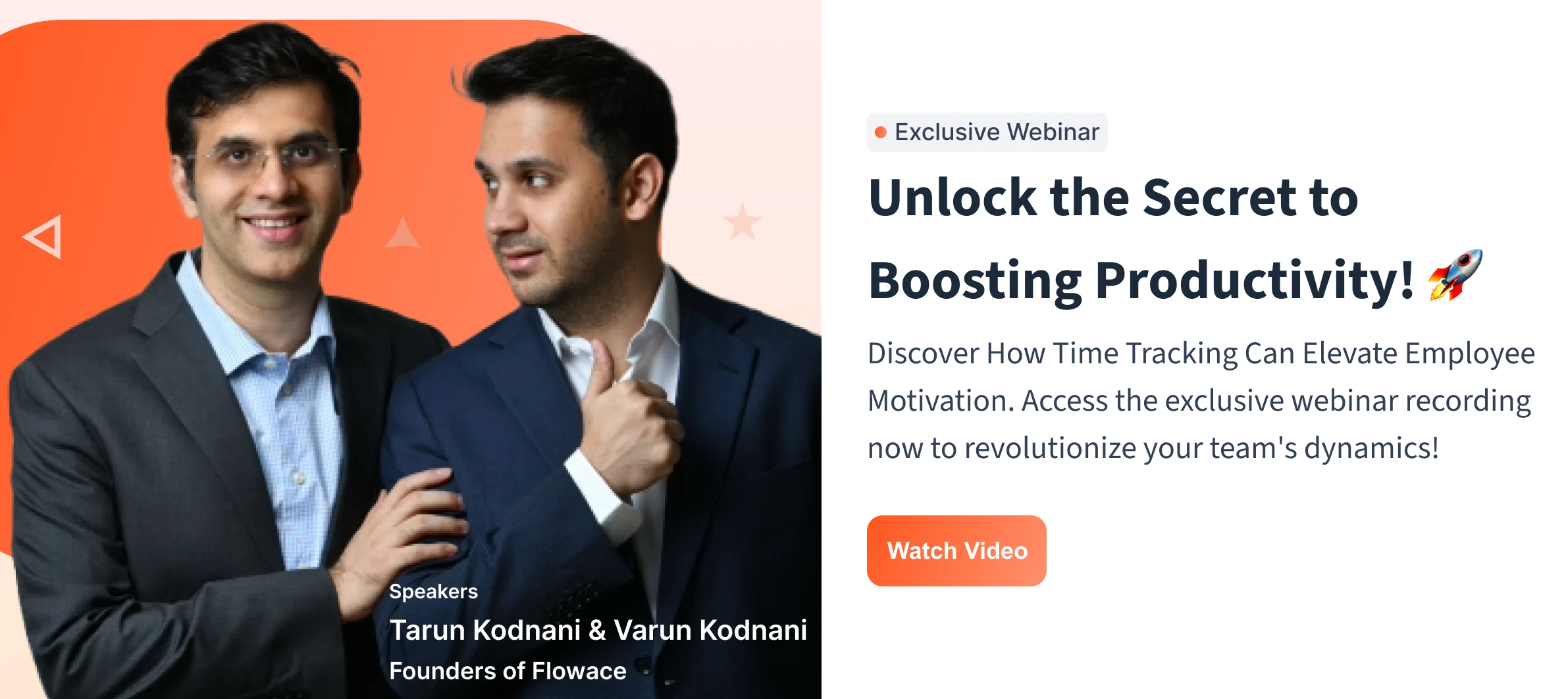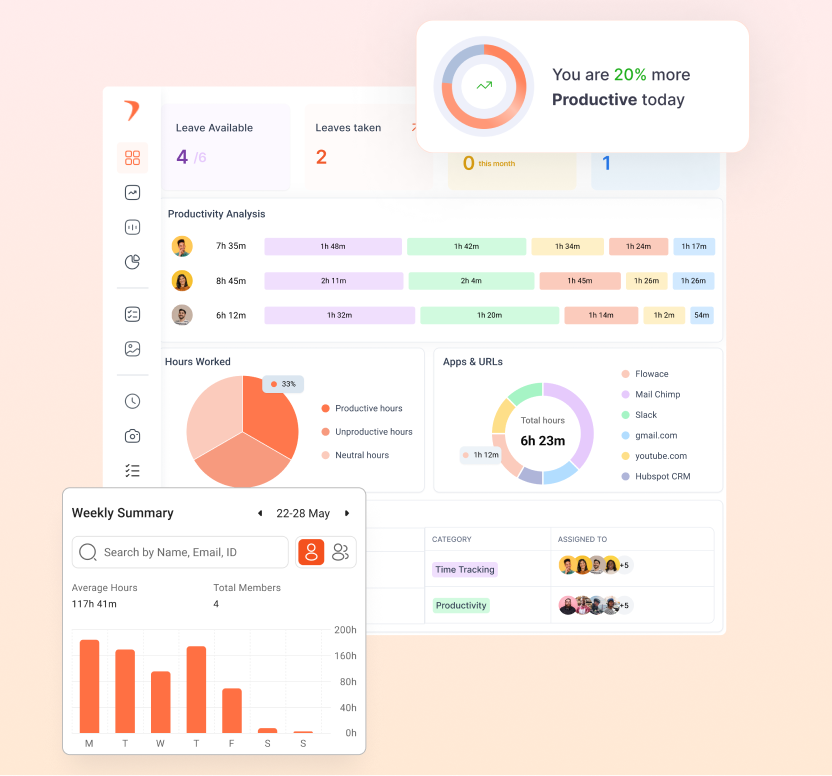If you’ve been researching time-tracking tools, chances are you’ve been weighing Hubstaff against Toggl. It’s a common debate: Hubstaff with its intense monitoring capabilities vs Toggl with its sleek, minimalistic time logging. But what if there’s a third productivity tool that combines the best of both, and skips the usual headaches?
That’s Flowace. Built for modern teams that want automated tracking, AI-driven insights, and a truly seamless experience, Flowace is quickly becoming the go-to time tracking software for small businesses and enterprises tired of micromanagement or clunky workflows.
Key takeaways:
- Hubstaff vs Toggl is a classic debate—Hubstaff offers deep monitoring, while Toggl focuses on clean, simple time logging without surveillance.
- Flowace introduces a smarter third option, blending automation, privacy-aware monitoring, and AI-powered productivity insights.
- Hubstaff excels in oversight and proof-of-work, making it ideal for distributed teams that require accountability, GPS tracking, and screenshot validation.
- Toggl shines in user-friendliness, offering effortless time logging for freelancers, agencies, and teams that prioritize autonomy over monitoring.
- Flowace outperforms both in automation, transparency, and data intelligence, offering silent tracking, distraction insights, workload visibility, and modern reporting at a far more affordable price point.
Understanding Hubstaff’s Time Tracking
Hubstaff’s time tracking system is built around a combination of manual timers and optional monitoring features that help businesses capture accurate work hours while maintaining oversight of distributed or hybrid teams. At its core, Hubstaff makes it easy for users to start, stop, and switch between tasks or projects through its desktop, mobile, and web apps. This timer-driven approach gives teams control over when they log time, while giving managers structured data to review productivity, project allocation, and billable hours.
How Hubstaff Captures Work Hours
Hubstaff primarily relies on a start/stop timer, meaning employees decide when tracking begins or ends. Once started, Hubstaff records the total active time spent inside a work session, logs it under the specific project or task selected, and places that time into weekly reports and dashboards. Because it does not automatically capture activity unless the timer is running, its accuracy depends on user discipline. This approach benefits businesses that prefer intentional tracking but can lead to missed hours or inconsistencies when users forget to toggle the timer.
The Role of Activity Monitoring
A big part of Hubstaff’s tracking experience is its optional monitoring features—screenshots, idle-time detection, and keyboard/mouse activity percentages. These inputs help managers validate whether tracked time reflects real work, especially in remote environments. The tool flags idle periods and can automatically stop the timer if the user becomes inactive, reducing overcounted hours. While this monitoring layer strengthens data accuracy, some teams may find it intrusive, which makes it more aligned with environments where accountability and proof-of-work matter deeply.
Project & Task-Level Precision
Hubstaff allows users to log time directly into projects and tasks, giving businesses a clear breakdown of how hours are distributed across clients, deliverables, or internal work categories. Managers can analyze whether teams are over-servicing clients, under-utilizing hours, or misallocating time across projects. This project-based tracking also powers Hubstaff’s budgeting features, where teams can set hour limits, cost controls, and alerts when projects are nearing thresholds. It’s particularly useful for agencies and service-based teams who need to track billable vs non-billable work accurately.
Reports That Turn Time Into Insight
Hubstaff’s reporting suite transforms raw tracked hours into summaries showing productivity trends, daily and weekly performance, task distribution, individual attendance, and project progress. These reports help leaders understand how productive each workday is, where bottlenecks arise, and whether employees meet expected hours. The reports can also be automated or exported, making them useful for client invoices and compliance needs. For businesses operating with outsourced teams, freelancers, or shift-based staff, these insights create a more transparent and predictable workflow.
Understanding Toggl’s Time Tracking
Toggl’s time tracking system is built around simplicity, flexibility, and minimal user friction. Its design focuses on helping individuals and teams track hours without the heaviness, surveillance, or operational overhead found in traditional monitoring tools. Whether you’re a freelancer, agency, consultant, or creative team, Toggl’s philosophy is rooted in one thing: make time tracking so effortless that people actually use it consistently. The result is a clean, intuitive timer-based experience that captures work hours in real time while maintaining trust and autonomy for users across different workflows.
How Toggl’s Timer-Based System Works
At its core, Toggl uses a start/stop timer that users activate whenever they begin working on a task or project. This timer can be launched from the web dashboard, mobile app, or desktop widget, making it extremely versatile for people who switch environments throughout the day. Because Toggl doesn’t rely on screenshots, keystroke monitoring, or forced tracking, employees retain full control over what gets logged. This intentional tracking method ensures that data is accurate without feeling intrusive—ideal for knowledge workers who thrive on autonomy rather than oversight.
Automatic Tracking and Smart Suggestions
While Toggl is timer-first, it also helps users avoid forgetting to track time through its smart features. For instance, the desktop app can passively observe active applications (without capturing content) and remind users when they’ve been working without a timer running. Toggl also offers auto-tracking rules, where it automatically starts logging time when certain apps or websites are opened. These gentle nudges and intelligent triggers reduce missed hours, which is particularly helpful for consultants, lawyers, or creators who bill by the hour.
Task, Project, and Client-Level Tracking
Toggl organizes tracked hours into structured layers—tasks, projects, clients—so that teams can understand where time is going with remarkable clarity. Each time entry can be tagged or categorized to reflect the type of work, enabling detailed breakdowns for billables, non-billables, and internal activities. This system is especially valuable for agencies or service-based teams who need visibility into how hours are distributed across clients and deliverables. Over time, these granular insights help identify scope creep, resource overload, and time sinks that affect profitability.
Insights, Reports, and Workload Visibility
One of Toggl’s strongest advantages is its reporting engine. It transforms raw time logs into clean, visual summaries that reveal patterns in productivity, client allocation, and team output. The platform offers everything from simple timesheets to profitability dashboards, allowing managers to monitor workloads without micromanaging. Teams can review billable utilization rates, compare estimated vs. actual hours, and even forecast capacity based on past data. Because Toggl avoids intrusive monitoring, these reports serve as empowerment tools, not surveillance mechanisms—making them a favorite for modern, trust-driven teams.
Hubstaff vs Toggl vs Flowace
| Dimension | Hubstaff | Toggl Track | Flowace |
|---|---|---|---|
| Time Tracking Style | Manual timer + background tracking + GPS tracking for field teams | Manual start/stop timer + autotracker suggestions based on app usage | Automatic “silent” tracking + real-time attendance + task/project tracking |
| Activity & Monitoring | Screenshots, keyboard/mouse activity %, app/URL usage, idle detection | App/website usage only; no screenshots or intrusive monitoring | Configurable screenshots, activity levels, app/URL usage, idle & missing-hour alerts |
| Attendance / Shifts | Built-in scheduling, GPS clock-ins, shift limits, PTO tracking | No shift scheduling or attendance management | Automatic attendance tracking, in/out times, idle alerts, leave/holiday management |
| Project & Task Tracking | Projects and tasks available; deeper tools via Hubstaff Tasks | Strong task/project tracking with estimates, tags, and client breakdowns | Built-in projects, tasks, budgeted vs actual hours, and detailed work context |
| Reporting & Analytics | Detailed reports: productivity, payments, attendance, budgets | Clean reports: summary, detailed, weekly, profitability insights | Productivity, attendance, timesheets, app usage, workload, project health |
| Privacy vs Control | High monitoring: screenshots, GPS, activity percentages | Trust-first model: minimal monitoring, no screenshots | Balanced approach: privacy settings + optional monitoring |
| Integrations | ~35+ integrations (PM tools, payroll, accounting) | 100+ integrations (PM tools, calendars, invoicing) | Integrations with HRMS, project tools; broader support for enterprise plans |
| Mobile / Field Work | Robust mobile app with GPS & geofencing | Mobile app with basic time tracking; no GPS features | Supports remote/field teams with attendance, activity tracking, and device syncing |
| Best For | Remote or distributed teams needing tight oversight + time + attendance | Freelancers, consultants, small teams wanting simple, non-intrusive tracking | Growing teams needing automation, productivity insights, and balanced monitoring |
Quick Look at Hubstaff and Toggl
Hubstaff vs Toggl: User Friendliness
When it comes to user friendliness, Toggl tends to feel lighter, more intuitive, and more flexible for a wide range of users. Its clean timer-based interface is straightforward — users simply start and stop the timer when they begin or end a task. This minimal overhead makes it especially friendly for freelancers, consultants, and teams that dislike complex monitoring systems. The mobile and desktop apps are well-integrated, and the smart suggestions (auto-tracking rules) help nudge users when they forget to start tracking, without feeling heavy-handed. For users who value autonomy, Toggl’s design strikes a fine balance between control and simplicity.
Hubstaff, on the other hand, provides a richer suite of features, but with more complexity. The start/stop timer is easy to use, but the optional monitoring features like keyboard/mouse activity, screenshots, and GPS add layers of configuration and management. For users new to time tracking, or for teams without strong process discipline, the setup may feel more invasive or complicated. However, Hubstaff’s mobile app and its GPS clock-in make it highly accessible for remote and field teams. Managers benefit from its powerful capabilities, but employees may need onboarding so they understand how their activity is tracked and validated.
Hubstaff vs Toggl: Excellent Time Tracking
Toggl’s strength in time tracking lies in its elegance and precision. The start/stop timer ensures that time is logged exactly when intended, and users can assign entries to projects, clients, or tasks. The flexibility to tag entries, add descriptions, and break work into smaller segments gives teams excellent granularity. Toggl’s auto-tracker feature also helps catch untracked time by recognizing when a user is working on certain apps and suggesting entries — a helpful guardrail without enforcing tracking too aggressively.
Hubstaff’s time tracking, in contrast, is built for reliability and verification. Because it supports both a manual timer and background tracking, it captures a more complete picture of work sessions. Its activity-tracking capabilities—monitoring keyboard strokes, mouse movements, and idle time—help ensure that billed hours are backed by real engagement. The optional screenshot functionality further strengthens this, giving managers proof of work. For teams that need to justify time spent or pay workers based on time logs, Hubstaff’s tracking is comprehensive and defensible.
Hubstaff vs Toggl: How They Track Employee Activity
Toggl takes a relatively hands-off approach to activity monitoring. While it tracks which applications and websites are used, it does not take screenshots, record keystrokes, or enforce screenshot capture. This reduces the feeling of surveillance and builds trust — employees know that their time is being tracked, but not their every move. Idle detection helps identify when a user isn’t active, but Toggl’s main philosophy is: measure time, not spy on behavior.
Hubstaff is much more robust in tracking employee activity. After users start the timer, Hubstaff monitors keyboard and mouse activity and records percentage activity to reflect how engaged the user truly was during a session. It can also take screenshots at configurable intervals, giving managers a visual verification of what was on the screen. For teams with remote workers, contractors, and field staff, this level of visibility provides a strong foundation for accountability, while the GPS and geofencing features give additional context for on-site work.
Hubstaff vs Toggl: Project Management
In terms of project management, Toggl is well-suited for teams that need to correlate time with client deliverables, internal tasks, or billable projects. Users can create projects and tasks, assign them to clients, set estimates, and tag entries for future reporting. Toggl’s reporting tools then let managers break down time spent by project or task, calculate profitability, and track scope creep. Because tracking is lightweight, teams can use Toggl for both internal operations and client billing without overwhelming users with monitoring.
Hubstaff leans more into operational control than pure project management, but it still supports project-level tracking. With tasks (via its Hubstaff Tasks add-on) and project assignments, teams can log time precisely where it belongs. Moreover, Hubstaff lets managers set up budgets, limits, or alerts for projects, helping ensure that work doesn’t exceed estimated hours or cost. When combined with activity tracking, Hubstaff gives a very clear view of not just how many hours went into a project, but how productive those hours were. This is particularly useful for agencies or service businesses that need to reconcile time, productivity, and cost.
Hubstaff vs Toggl: Pricing, Value for Money
Toggl’s pricing model reflects its simplicity and broad appeal. For users who just want to track time with minimal fuss, Toggl offers a very high return on investment. Its core time-tracking functionality is strong, and since it’s not built around deep surveillance, organizations don’t pay for redundant monitoring tools.
For small teams, agencies, or consultants, Toggl’s plans tend to be cost-effective, since the value comes from user adoption and data clarity more than oversight.
Hubstaff’s pricing is higher — but for a reason. The advanced features like screenshot monitoring, GPS tracking, idle detection, and detailed reports justify the cost in environments where proof-of-work and location matter. For teams that need to validate hours, enforce accountability, or provide clients with time-based proof, Hubstaff delivers robust value.
In addition, features like mobile GPS clock-in, shift management, and payroll automation make Hubstaff a strong candidate for companies that treat time tracking as part of a broader workforce management strategy.
Hubstaff Pricing and Plans
Hubstaff offers multiple tiers designed for different levels of monitoring, time tracking detail, and workforce management needs. Below is a clear breakdown of what each plan includes.
Hubstaff Free Plan
Price: $0 forever
Best for: Solo users or very small teams needing simple time tracking.
Features Included:
Basic time tracking
Limited activity tracking
Limited reports
Timesheets
One user only
Hubstaff Starter Plan
Price: Around $7/user per month (billed annually)
Best for: Small teams who need lightweight productivity tracking without advanced monitoring.
Features Included:
Time tracking & activity levels
Screenshots (limited)
Idle timeout
Simple automated payroll
Basic reports
Integrations with popular tools
Up to two teams
Hubstaff Grow Plan
Price: Around $9/user per month (billed annually)
Best for: Teams needing more detailed time data plus light workforce scheduling.
Features Included:
Everything in Starter
Work-in-progress limits
More detailed reports
Automatic recurring payroll
Timesheet approvals
Attendance tracking
Basic scheduling tools
Hubstaff Team Plan
Price: Around $14/user per month (billed annually)
Best for: Mid-sized teams wanting deeper monitoring and labor optimization features.
Features Included:
Everything in Grow
Advanced productivity insights
Unlimited screenshots
App & website usage data
Client billing
Project budgets
Employee productivity trends
Advanced scheduling tools
Break tracking
Hubstaff Enterprise Plan
Price: Custom pricing
Best for: Enterprises requiring full monitoring, governance, and compliance controls.
Features Included:
Everything in Team
VIP support & onboarding
Advanced policy customization
Unlimited job sites
Screenshots control & privacy rules
Enhanced admin roles
Audit logs
SSO (single sign-on)
Advanced API capabilities
Toggl Track’s Pricing and Plans
Toggl Track offers four main plans that range from simple time tracking for small teams to full-scale reporting and profitability analytics for larger organizations. Here’s a clear breakdown of each tier and what you get.
Free Plan
Price: $0
Best for: Individuals and small teams (up to 5 users) needing basic time tracking.
Features Included:
Simple time tracking across web, desktop, and mobile
Idle detection
Basic reports
Calendar integration (Google & Outlook)
Integrations with 100+ tools
Unlimited time entries
Starter Plan
Price: $9/user/month (annual) or $10/user/month (monthly)
Best for: Small teams that need project-level tracking, billable hours, and better reporting.
Features Included:
Everything in Free
Billable rates
Project time estimates & alerts
Task management
Saved reports
Create clients, projects, and tasks
Time rounding rules
More customization for reports
Favorite time entries for quick tracking
Premium Plan
Price: $18/user/month (annual) or $20/user/month (monthly)
Best for: Growing teams needing approvals, profitability insights, and stronger operational controls.
Features Included:
Everything in Starter
Project profitability and revenue tracking
Fixed-fee project management
Timesheet approvals
Required fields for time entries
Historical billable rates
SSO (single sign-on)
Insights dashboard
Scheduled automated reports
Alerts for projects running over budget or time
Enterprise Plan
Price: Custom
Best for: Large organizations needing advanced support, security, and onboarding.
Features Included:
Everything in Premium
Custom onboarding
Priority support
Flexible contract and pricing
Multiple workspaces under one organization
Advanced permission controls
Volume discounts
Custom data management options
Flowace: A Third Option You Shouldn’t Miss
Now let’s talk about Flowace, the emerging time tracking solution that’s been making waves.
Unlike tools that focus solely on either control or simplicity, Flowace takes a data-driven, people-first approach. It offers automated time tracking without manual inputs or employee friction, AI-based productivity reports to spot distractions, focus zones, and engagement levels.
Flowace’s privacy-aware features respect employee autonomy while still keeping managers in the loop, it also fits right in with the rhythm of modern teams, especially for remote, hybrid, and digital-first businesses that need to scale without micromanagement. Unlike Toggl and Hubstaff, Flowace isn’t a timekeeper, it’s a performance improver.
Flowace offers three straightforward paid plans (Basic, Standard, Premium), plus a customizable Enterprise option for larger teams. Each plan builds on the previous one, unlocking deeper automation, productivity insights, and monitoring flexibility.
Flowace Basic Plan
Price: $1.99 / user / month
Best for: Startups and small teams wanting automated time tracking at the lowest cost in the market.
Features Included:
Silent (automatic) time tracking
Unlimited users & user groups
Unlimited projects and tasks
Team and individual performance dashboards
Unlimited screenshots
Activity tracking
Work–life balance analytics
Basic productivity reports
Timesheets with custom fields
Real-time live status of team members
Idle time auto-detection and auto-discard
Flowace Standard Plan
Price: $3.99 / user / month
Best for: Teams looking for detailed productivity insights, scheduling, and deeper activity visibility.
Features Included:
Everything in Basic
Productivity ratings for company, teams, and individuals
Break and inactivity tracking
Website & app usage monitoring
Raw activity logs (1-second accuracy)
AI-powered alerts
Leave management and holiday workflows
Shift scheduling tools
Integrations with 10+ platforms
Daily and real-time notifications
Multi-level approvals for timesheets and requests
Flowace Premium Plan
Price: $6.99 / user / month
Best for: Organizations needing advanced monitoring, client access, and executive-level reporting.
Features Included:
Everything in Standard
Higher-frequency screenshots
Keyboard & mouse activity tracking
Internet connectivity and IP address tracking
Client login access for transparency
Executive dashboards and deep analytics
Dedicated account manager
Automated user provisioning
Longer data retention and historical insights
Flowace Enterprise Plan
Price: Custom
Best for: Large organizations that need full customization, governance, and dedicated technical support.
Features Included:
Everything in Premium
Fully customizable monitoring rules (apps, screenshots, time tracking behavior)
Advanced analytics tailored to enterprise workflows
24/7 premium support
Custom billing and provisioning
Extended data retention options
White-labeling options upon request
Final Recommendation: Flowace is the Smarter Middle Path
Flowace doesn’t rely on invasive surveillance to ensure productivity. It trusts your people while giving you deep visibility into how time is spent, powered by real-time automation, intelligent productivity insights, and a clean, modern user experience that teams actually enjoy using.
Unlike Hubstaff, Flowace doesn’t leave you with manual guesswork or superficial reports. It gives you context, not just data, helping you identify bottlenecks, reduce unproductive time, and make smarter staffing or project decisions based on actual work patterns.
Sign up for Flowace’s 7-day free trial today and experience the tool first-hand.
Frequently Asked Questions
1. What makes Flowace different from Hubstaff and Toggl?
Flowace sits in the sweet spot between Hubstaff’s intense monitoring features and Toggl’s minimalistic approach. While Hubstaff leans heavily into verification and Toggl focuses on simplicity, Flowace delivers automated time tracking, AI-driven insights, and privacy-aware monitoring. This means managers get the clarity they need without burdening employees with manual timers or intrusive surveillance—ideal for modern teams that want trust, efficiency, and smarter decision-making.
2. Is Flowace less intrusive than Hubstaff but more powerful than Toggl?
Yes. Hubstaff can feel heavy because of screenshots, activity percentages, GPS tracking, and monitoring tools, while Toggl intentionally avoids these features to build trust. Flowace offers a balanced approach: it automates tracking in the background, provides optional monitoring settings, and keeps employees fully aware of what’s being tracked. Teams get behavioral insights and productivity patterns without feeling watched, and managers get the visibility they need without micromanagement.
3. Which tool is better for remote or hybrid teams?
Hubstaff works well for remote teams that require strict oversight, proof-of-work, or location-based tracking. Toggl fits creative and autonomous teams that prefer lightweight tracking without monitoring. Flowace works universally across both models because it blends automatic tracking, attendance visibility, and activity insights with customizable privacy controls. It adapts to remote, hybrid, and in-office teams without compromising trust or productivity.
4. How does Flowace help improve productivity compared to Hubstaff and Toggl?
While Hubstaff and Toggl mostly track time, Flowace goes further by analyzing how time is spent. It highlights distractions, focus patterns, context switching, and workload bottlenecks to help teams improve performance—not just log hours. Instead of just showing data, Flowace interprets it, giving managers clear insights into what drives productivity and what slows work down. The tool becomes not just a tracker, but a performance assistant for individuals and teams.

